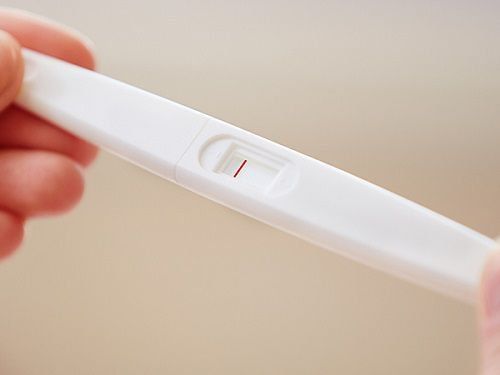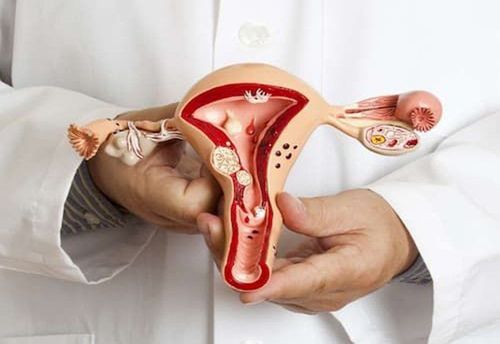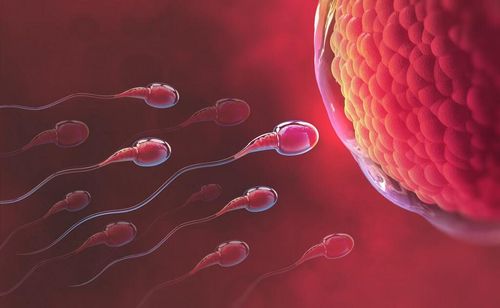This is an automatically translated article.
The article was professionally consulted by Specialist Doctor I Le Hong Lien - Department of Obstetrics and Gynecology - Vinmec Central Park International General Hospital.The journey of egg and sperm to meet takes time and needs to be right. So how does conception happen? And how long will it take to know the results have successfully conceived? The following article will help you better understand the process of conception.
1. The fusion of sperm and egg
The process of conception can only happen when there are two important factors that are sperm and egg.Egg cells:
Eggs are produced by a woman's ovaries. After each menstrual cycle, a woman's ovaries release 1-3 eggs. After ovulation, the egg must travel through the fallopian tube (about 10cm long) to reach the uterus. Eggs live for 24 hours after ovulation. So you can only fertilize during this time you can get pregnant. If the 24-hour period is not fertilized, the egg dies and is ejected during the next menstrual period.
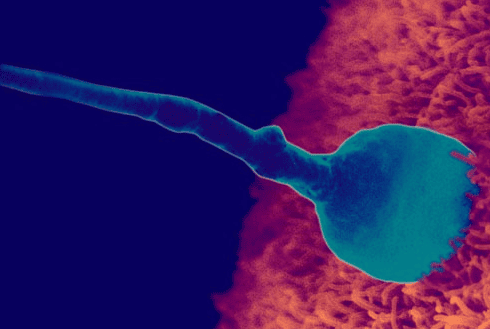
In contrast, the male body continuously produces sperm. It usually takes about 2-3 months for new sperm cells to form. These sperm cells can survive for several weeks in the male body. When he ejaculates, a man can release about 40-300 million sperm. But, only the healthiest sperm can meet the egg. The fastest time when the sperm meets the egg is always at the beginning of the tube. The shortest estimated time is about 45 minutes and the slowest is 12 hours. However, if the sperm does not meet the egg, it will have to wait for 2-3 days when the egg is released to be fertilized.
Trắc nghiệm: Sự hiểu biết của bạn về kinh nguyệt
Kinh nguyệt có vai trò quan trọng đối với sức khỏe sinh sản, do đó nữ giới cần chủ động trang bị kiến thức để theo dõi và kiểm soát tình trạng sức khỏe. Bài trắc nghiệm sau đây sẽ giúp bạn hiểu hơn về chu kỳ kinh nguyệt của bản thân.2. How does conception happen?
The union of the father's sperm and the mother's egg is the process of conception:When you ejaculate, about 40 to 300 million sperms enter the woman's vagina. Here, spermatozoa will start at different locations in the vagina to look for eggs. Millions of sperm will start the race with about 18cm long distance from the cervix to the fallopian tubes to be able to fertilize an egg. Healthy sperm can only move at a rate of 2.5 cm every 15 minutes. The first obstacle that the sperms encounter on the track is the mucus in the cervix. In the days around ovulation, the cervix secretes mucus and becomes loose, slippery, and smooth, making it easy for sperm to swim through. When the sperm meets the egg, it does not mean that they have merged right away. And sperm also have to "break the eggshell" to get in. Only the strongest sperm can enter because after the sperm has combined with the ovum. The egg will secrete a substance that hardens the shell so that no other sperm can enter.
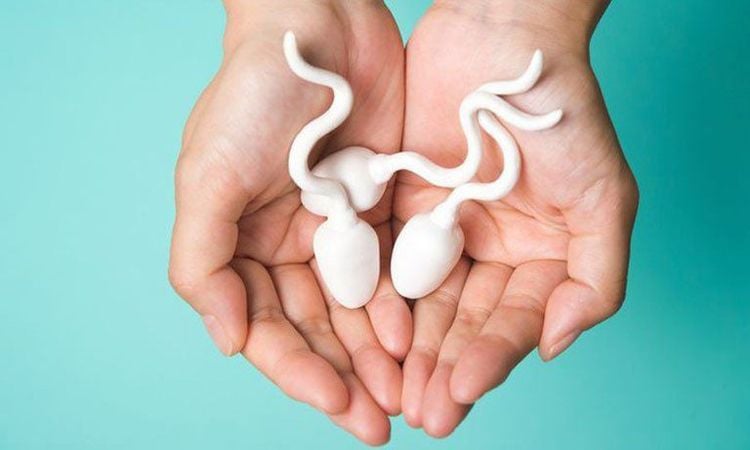
3. How long does it take to conceive?
The process of conception is counted from when the sperm fuses with the egg to form a zygote. Until the embryo is implanted in the uterus. About 3-4 days after fertilization, the egg is fertilized. That is, the zygote begins to gradually move into the uterus to find a place to nest and divide 3 times along the way.After finding a suitable place to implant in the uterus, the blastocyst will form a prosthetic leg that attaches to the mucosa, forming the placenta. The nesting process takes 7-10 days.
In general, conception will take 13-14 days. However, not having completed the implantation does not mean you have successfully conceived. In one third of cases, the fertilized egg attaches to the wall of the uterus. But still no pregnancy because the zygote encounters a chromosomal mutation during meiosis.
To conceive women need to monitor the body's signs such as menstruation and early signs of pregnancy, or if your period is late, you can use a home pregnancy test, blood test to be sure. Are you sure you are pregnant?
Specialist I Le Hong Lien is an obstetrician-gynecologist at Vinmec Central Park International Hospital since November 2016. Doctor Lien has over 10 years of experience as a radiologist in the Department of Ultrasound at the leading hospital in the field of obstetrics and gynecology in the South - Tu Du Hospital.
Please dial HOTLINE for more information or register for an appointment HERE. Download MyVinmec app to make appointments faster and to manage your bookings easily.
SEE MORE
The process of fetal formation and development week by week How long after pregnancy does the fetus enter the uterus? How do embryos form and nest?





